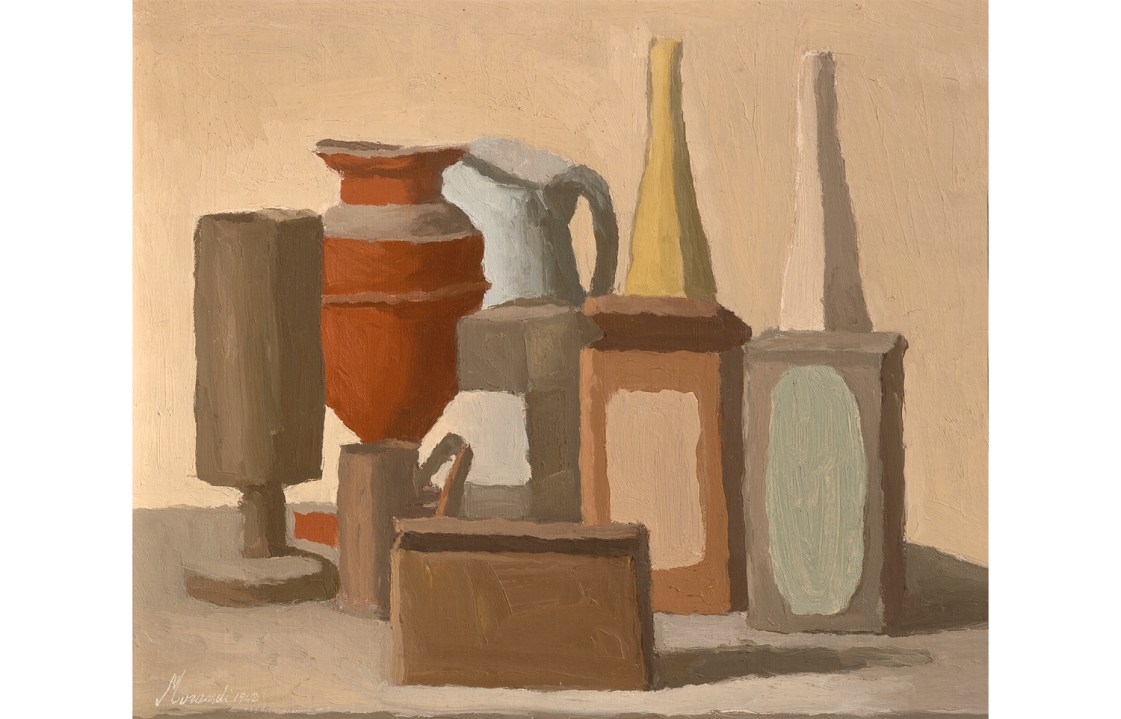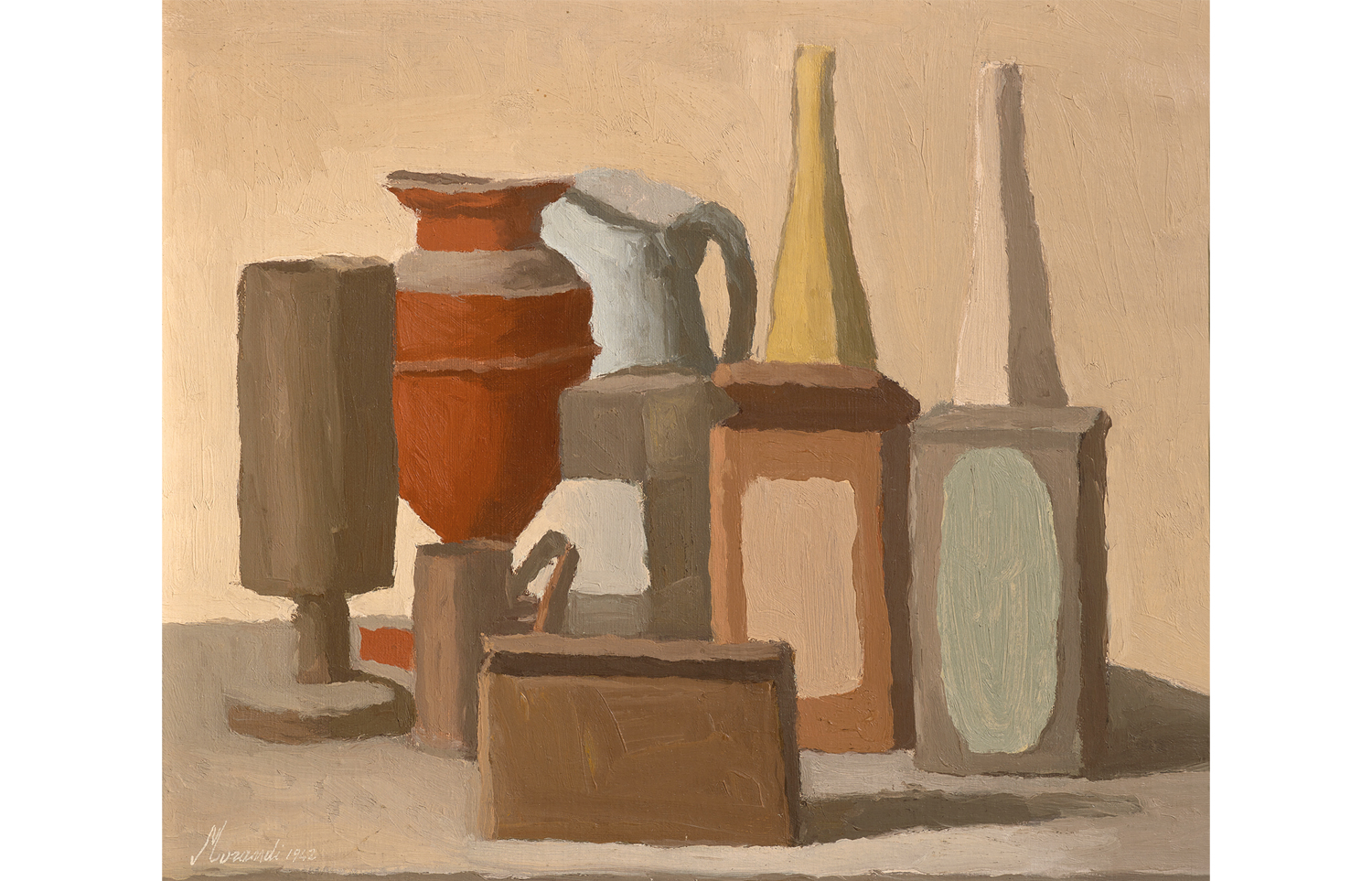There are various staples of still life painting, some symbolic, some not. Skulls and musical instruments suggest the transience of human pleasure; crocks and bottles are usually just vehicles for displays of technical virtuosity. Crocks and bottles are what Giorgio Morandi painted, not because he wanted to show off but because he liked their lack of symbolism. So it’s odd to find a still life of musical instruments in the Estorick’s new Morandi exhibition.
The habitual axis of Morandi’s still lifes is vertical, but the dingy brown trumpet, mandolin and guitar in this composition lie in a heap as if too bored to exert themselves. The picture strikes a bum note. The subject, it turns out, was imposed on him, a commission from a new patron he was eager to please. Luigi Magnani would go on to acquire 50 more works by the artist, all currently on loan to this exhibition while the Magnani-Rocca Foundation is closed for the winter. A musicologist, Magnani even supplied the artist with a set of valuable instruments to paint. Morandi couldn’t do a thing with them. On collecting the finished work in 1941, Magnani was surprised to find his precious antiques replaced with toys picked up in a flea market. He never made the same mistake again.
Morandi could only work with cast-offs: bottles, flasks, bowls, pitchers, old Ovaltine tins, objects, one critic said, that ‘should have been thrown out long ago’. Instead, they found refuge in his bedroom-studio ranged on three still-life tables of different heights or crowded on to the floor beneath. The maid who cleaned the flat he shared with his three unmarried sisters on Bologna’s Via Fondazza was under strict instructions not to touch them; while the rest of the tiled floor was polished to a shine, they gathered dust.
Morandi found the ordinary quite interesting enough without lumbering it with metaphysical meanings
A mannequin in an early ‘Metaphysical Still Life’ of 1918 betrays the influence of Giorgio de Chirico he would later deny.









Comments
Join the debate for just £1 a month
Be part of the conversation with other Spectator readers by getting your first three months for £3.
UNLOCK ACCESS Just £1 a monthAlready a subscriber? Log in